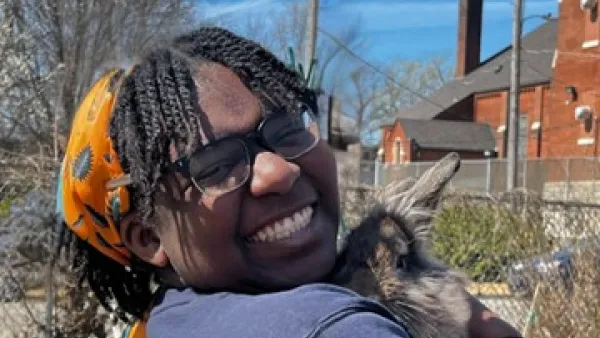Arts & Sciences students had an opportunity to learn from climate leaders, researchers, and professionals during the Midwest Climate Summit.
The event, held on the WashU campus February 21-23, brought together attendees from across the Midwest to connect and share a vision for a climate resilient region.
The conference was organized by the Midwest Climate Collaborative, a network of more than 60 partners — including sectors of academia, industry, and government — working to accelerate climate solutions. The group launched in 2022, growing from a series of think tank sessions to a formal organization with over 30 founding members.

Arts & Sciences students were able to attend the summit for free by volunteering to moderate and record sessions.
David Fike, the Glassberg/Greensfelder Distinguished University Professor and chair of the Department of Earth and Planetary Sciences, said the opportunity for students to observe the principles they learn in class being put into practice was an invaluable experience.
“A lot of what students experience at WashU is traditional education where you’re in a classroom,” said Fike, who also served on the executive committee for the summit. “The ability to get involved provides opportunities to actually engage in real-world problems with the people who deal with them on a day-to-day basis.”
Hannah Woodhouse, a first-year student studying data science, and Jacob Cummings, a first-year student studying environmental biology, attended the summit and worked as notetakers, summarizing critical points from each session.

Cummings said watching attendees collaborate allowed him to see “a mosaic of these unique solutions coming together to make really large, impactful change.”
“Teachers can bring in experts to talk about their area of expertise, but an element that a classroom won’t have is the collaboration between the speaker and the audience,” Cummings said. At the climate summit, attendees were also specialists in their respective fields or organizations. “The insights they bring to the workshops are ideas that you wouldn’t necessarily have in a classroom.”
Woodhouse said she attended to learn more about climate causes in the Midwest. “I attended one session about environmental racism in St. Louis, and one of the most interesting things was seeing the ways people of different careers can focus on the same issue.”
Both students said the conference helped them gain a new perspective on environmental issues. “I left feeling hopeful,” Cummings said. “I saw the need for collaboration and the need to continue working.”

